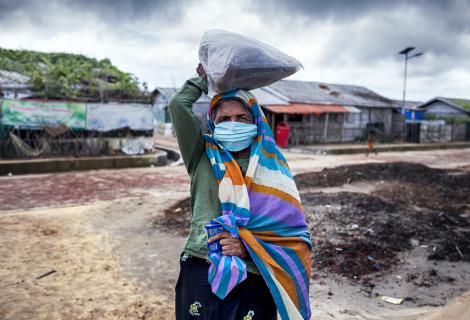
The IMF has a long history of imposing economic austerity programs on heavily indebted developing countries. Building on our April 2020 report on changes required in how the IMF and governments employ and follow those programs, the need for substantial external debt cancellation, and progressive reforms to tax systems, this briefing looks at how the Covid-19 crises have affected IMF policy “advice,” with a particular focus on constraints on wage bills for providers of public services.
Despite some high-flown rhetoric from IMF management, it turns out that the “condition-free” emergency loans from the international financial institution, distributed from April through July this year, contain “commitments” from governments to implement new or renewed austerity programs as soon as the immediate health crisis has peaked, with little provision for any recovery period. And despite the virus exposing the manifest shortcomings of developing country health systems, wage bills remain a target for rapid cuts once the initial stages of the crisis are over.